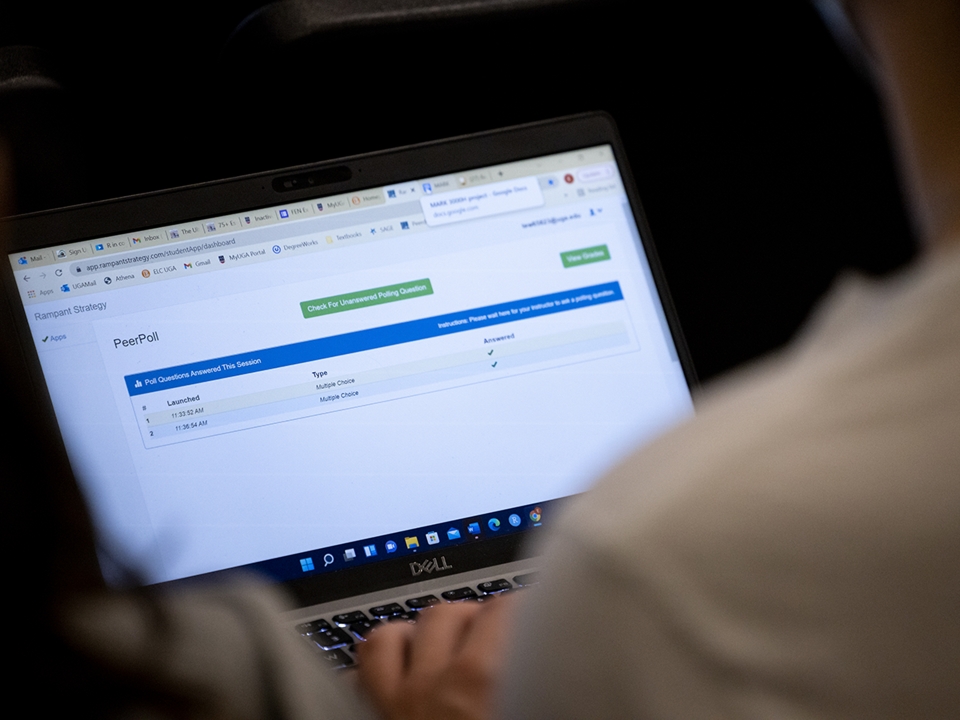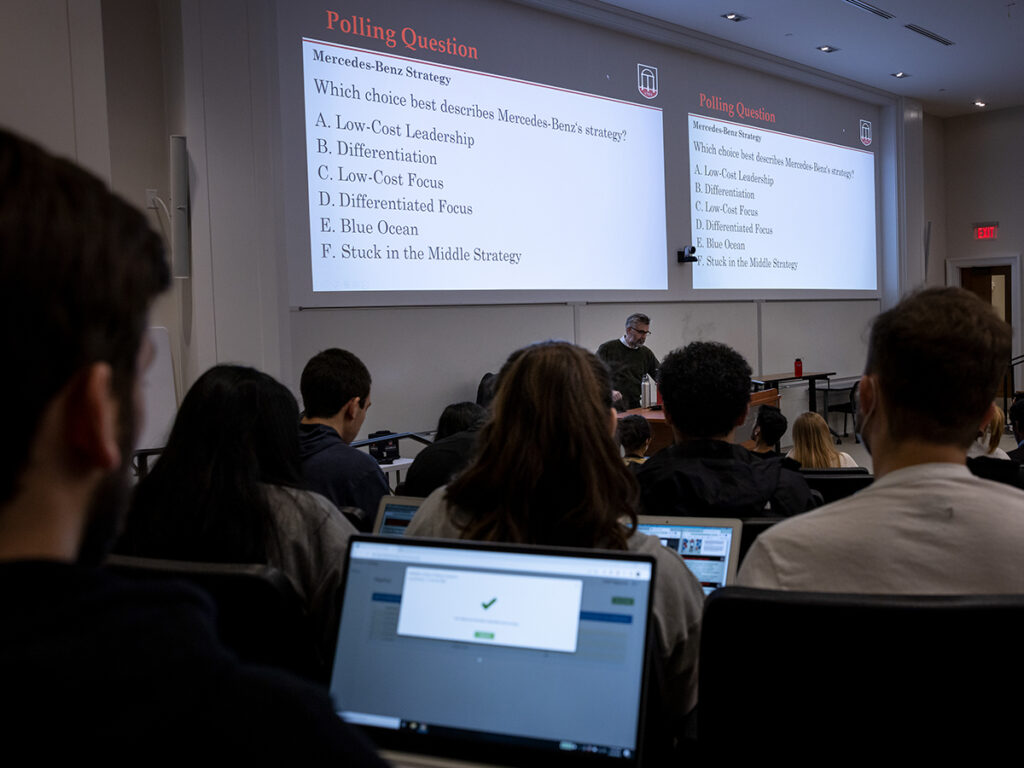It can be hard to raise your hand for class discussion when you have 300 classmates.
But no one resists an online poll.
Charles Lyons, a senior lecturer in the Department of Management, uses live internet-based polling to quiz students on course material as he teaches and spurs discussions. Even his most-reserved students are eager to join in.
“One of the benefits of polling generally is it gives everyone a chance to participate,” Lyons said. “Even in the small classes, where it’s usually easier to get a discussion going, there are certain students who don’t want to participate. Polling engages everyone in the classroom, at least at a base-line level, because they all respond to the question.
“They like having a say and seeing their opinion on the board.”
Lyons, who taught more than 4,800 students in his large-section Principles of Management course since 2014, is credited with reinvigorating the once-dreaded prerequisite class. Every Terry student must take the course to earn their undergraduate degree. Before Lyons, the lecture-based class scared students away from the management major, said Robert Vandenberg, head of the management department and the Robert O. Arnold Professor of Business.
Lyons, who has also served as an adjunct professor at the UGA School of Law, wanted the class to be more discussion-based. When he looked at class enrollment numbers, that wasn’t going to be an easy task.
“I’d been teaching business ethics and was doing that in a discussion-based way, so it was a real transition when I first started teaching the 300-person classes,” he said. “I was looking for ways to get students more engaged and present in the classroom — not just physically present but actively interested in the subject matter.”
He introduced case studies and examples from companies students were familiar with, instituted assignments where students reviewed and reacted to each other’s work and initiated in-class polling.
Polling has become key to getting students to think about what they are learning while sitting in class, he said.
Lyons projects a multiple-choice or short answer question on a screen in front of the class, and students log their answers on a shared website.
Lyons participated in the UGA Center for Teaching and Learning’s Active Learning Summer Institute in 2018, and the experience underscored why polling was such a powerful tool. It helped him incorporate more active learning strategies into is his courses.
“Active learning principles permeate everything I do. It colors everything I choose, including how I use polling,” Lyons said. “The polling lets students know that I’m expecting something from them when they come to class.”
Polling keeps students checked in, but it works best as an on-ramp for discussion. Lyons uses questions with somewhat subjective answers to spark conversations about concepts discussed.

“The polls spawn actual discussions and interactions in the classroom,” Lyons said. “That’s when polling is at its best. I use it, No. 1, to get them engaged and interested. Then it pulls them into discussions outside of the polling — face-to-face with each other and with me.”
Over the last year, Lyons has used a Terry College Teaching Innovation grant to help develop an in-class polling function to be added to an existing low-cost assignment-management platform called Peerdoc. Peerdoc allows students to share and respond to each other’s work, and already was in use in the Principles of Management courses.
The $7 program package — Peerdoc and Peerpoll — was developed by private software developers and is now used widely across the management department.
By eliminating the need for a premium polling platform that carries a $22 per student fee, Lyons and his colleagues have saved the college’s 2,100 Principles of Management students tens of thousands of dollars each year.
Accounting student Annie Merrill likes polling in larger classes and appreciates that Lyons worked to make the product available at a lower cost.
“The polls break up the lectures,” said Merrill. “They help you check whether you understand the concepts.
“And it’s cheaper. I like that too.”

